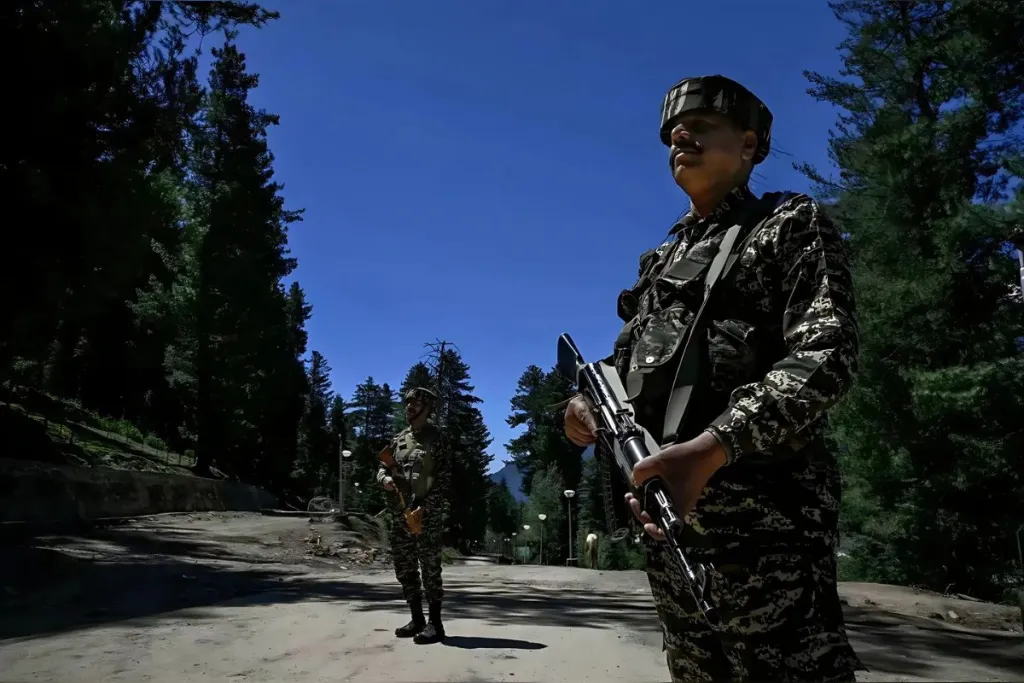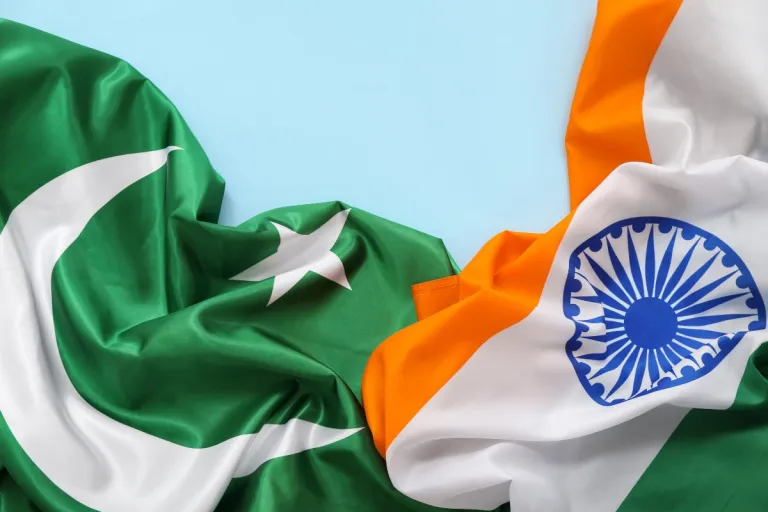Kowloon offers halal‑certified options for every craving Muslim travellers!
Is It Safe to Travel to India Right Now? What Muslim Travellers Need to Know (May 2025)

India has always been a favourite destination for travellers from around the world – including Muslim travellers – drawn by its spiritual depth, vibrant cultures, and diverse cuisines (including plenty of halal options). However, as of May 2025, recent events have raised serious concerns about safety, especially in the northern parts of the country.
So, is it still safe to visit India now? Let’s take a closer look at what’s happening, how it affects travel plans, and what Muslim travellers should keep in mind.
What happened: Operation Sindoor and tensions with Pakistan
 Image credit: Wikimedia Commons
Image credit: Wikimedia Commons
On 7 May 2025, India launched a military operation known as Operation Sindoor, targeting nine sites in Pakistan and Pakistan-administered Kashmir. This came after a devastating terrorist attack in Pahalgam, Jammu and Kashmir, that claimed the lives of 26 Indian tourists – an incident that shocked the nation and prompted swift retaliation.
Pakistan has reported civilian casualties and responded by shooting down several Indian drones, leading to a serious uptick in regional tensions. The situation has become the most serious military escalation between India and Pakistan in over 20 years – and this has directly impacted travel safety and infrastructure in both countries.
What this means for travellers?
Flight disruptions have been widespread. India has temporarily closed over 20 airports in its northern and western regions, including travel hubs like Amritsar and Srinagar – areas that many Muslim travellers often pass through en route to religious or cultural sites.
Many domestic airlines like IndiGo and Air India have cancelled or rerouted flights, while international carriers such as Lufthansa and Air France have begun avoiding Pakistani airspace, making flight times longer.
If you're planning a trip to India – especially to the north – it's crucial to double-check flight schedules and airport operations with your airline.
Global travel warnings (Updated)
Several countries have updated their travel advisories due to the escalating situation:
United Kingdom: Avoid all travel within 10 km of the India-Pakistan border, and to Jammu & Kashmir (including Srinagar and Pahalgam), citing terrorism and unrest.
United States: Recommends avoiding Jammu & Kashmir and border regions; bans U.S. government personnel from travelling there.
Canada: Advises citizens to monitor developments closely and prepare for possible evacuation instructions.
Singapore: Strongly advises against non-essential travel to Jammu & Kashmir and Pakistan due to unpredictable security conditions.
Australia: Urges travellers to reconsider travel to northern India, especially Jammu & Kashmir, due to the risk of conflict and civil unrest.
New Zealand: Warns citizens to avoid areas near the Line of Control (LoC) and closely monitor official updates.
Malaysia: Issued a travel advisory urging citizens to delay non-essential travel to India and Pakistan, particularly to conflict-prone regions.
This growing list of advisories underscores the seriousness of the situation and highlights the need for extra caution when planning a visit to India right now.
Muslim travellers: What you need to know?
Muslim travellers often head to regions like Kashmir not only for scenic views, but also for their deep Islamic cultural heritage, including historic mosques, shrines, and halal-friendly hospitality. However, these areas are currently experiencing heightened military presence and civil unrest, making them unsafe for tourism.
Other concerns Muslim travellers should be aware of:
Religious and ethnic tensions may be heightened in sensitive areas. It's advisable to avoid any politically active zones or demonstrations.
Hijabi travellers and Muslim families may attract attention in certain rural or conflict-prone regions; staying in diverse urban areas is safer.
Access to halal food and prayer spaces is generally reliable across India, but may be disrupted in conflict zones due to curfews or closures.
Safer alternatives for your Indian adventure
Fortunately, not all of India is affected. Southern and western parts of the country remain peaceful and welcoming – perfect for Muslim travellers seeking a memorable, halal-friendly experience.
🕌 Kerala
Rich in Islamic history and known for its warm hospitality, Kerala offers beautiful mosques, scenic backwaters, and a thriving halal food scene. Cities like Kozhikode and Kochi are particularly welcoming.
🕌 Goa
Beyond beaches, Goa is home to Indo-Islamic heritage and a growing number of halal restaurants. Coastal towns like Panaji offer both relaxation and culture.
🕌 Rajasthan
While known for its forts and palaces, Rajasthan also has a rich Muslim legacy. Halal food is accessible in cities like Jaipur, Udaipur, and Jodhpur, and many heritage hotels are happy to accommodate special requests.
Also read: India vs Pakistan: Which is A Better Holiday Destination For Muslims?
Final thoughts
 Image credit: pixelshot | Canva Pro
Image credit: pixelshot | Canva Pro
India remains a country full of wonder, history, and heart – but with tensions at a boiling point in the north, travellers need to be cautious. For Muslim travellers in particular, choosing safer destinations and staying informed is key.
Avoid the high-risk areas for now. Instead, consider exploring India's southern gems or postponing your trip until the situation stabilises. Keep a close eye on government advisories, flight updates, and local news. With thoughtful planning, your journey through India can still be both safe and spiritually rewarding.
Published at
About Author
Aimi Zulkiflee
Subscribe our Newsletter
Get our weekly tips and travel news!
Recommended Articles
15 Best Halal Foods in Kowloon, Hong Kong Top Muslim-Friendly Things to Do at The Newest Antara Genting Highlands It’s located between Peacehaven Campsite and Cradle Rock Genting Highlands, along Jalan Utama Genting Highlands
10 Best Halal-Friendly Destinations in The Philippines for Muslim Travellers Not just Boracay...
10 Best Places for Muslim Travellers to See Tulip Festivals in 2025 Fun Fact: Tulips didn’t actually come from the Netherlands but Türkiye!
10 Halal Anime Food Guide for Muslim Travellers in Japan Muslim-friendly versions of popular anime dishes across Japan!
Latest Articles
The Ultimate Bandung Travel Guide for Muslim Travelers, from Culinary Gems to Hotels Explore Bandung with confidence!
10 Must-Visit Halal Suhoor Spots in Bandung, Some Open 24/7 Make your Ramadan mornings easier and tastier.
Best Affordable All-You-Can-Eat Hotel Iftar Buffets in Jakarta 2026 hotels have become a top choice for Ramadan gatherings!
10 Best 24-Hour Halal Eateries in Singapore for Suhoor and Iftar Check out our curated list of 24-hour halal restaurants in Singapore for delicious Ramadan dining.
PokéPark KANTO: Muslim Traveler's Guide to Tokyo’s Newest Pokémon Theme Park A new adventure awaits!

